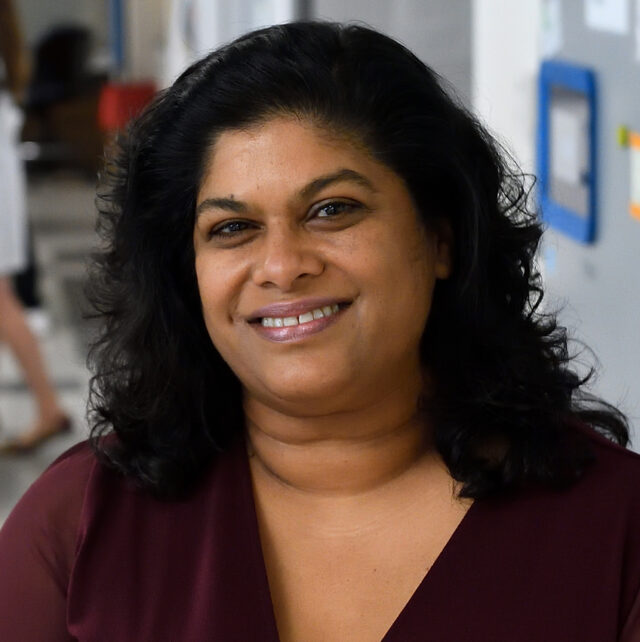
The Samuel Waxman Institute for Aging & Cancer unites two powerhouse organizations—The Mark Foundation for Cancer Research and the Samuel Waxman Cancer Research Foundation—to accelerate the fight against age-related cancers. Together, we’re building on our multi-year collaboration to further a shared mission: pursuing scientific discoveries at the intersection of aging and cancer.
Aging is the single most significant risk factor for cancer—and our rapidly aging global population is expected to drive a sharp increase in cancer rates in the coming years.
At the same time, cases of cancer among younger adults are increasing at an alarming rate, with early-onset disease rates rising across at least 14 types of cancer between 2010 and 2019.
Ultimately, understanding cancer across the entire lifespan is crucial to finding better treatments. We aim to understand the complex relationship between age and cancer in all its forms, from early life to advanced age, and develop new treatments and therapeutic approaches that help all patients live longer, better lives.
“The Samuel Waxman Institute for Aging & Cancer is dedicated to addressing the leading risk factor for cancer – aging. By uniting scientists worldwide to study aging and cancer together, the Institute accelerates discoveries that will identify individual cancer risk, improve prevention and early detection, and advance treatments toward a future of healthier aging and reduced cancer for all.
The new Waxman Institute will operate as a subsidiary of The Mark Foundation and represents a new future for SWCRF. This merger represents a natural evolution of our shared vision—and ensures SWCRF’s legacy will thrive through an expanded global platform. Since 2022, The Mark Foundation and SWCRF have co-hosted annual workshops, and in 2024, with additional support from the Melanoma Research Alliance, they jointly awarded $1.5 million to three collaborative research projects addressing aging and cancer.
In addition to those jointly-awarded grants, age-related cancer research currently makes up over $10 million of The Mark Foundation’s portfolio. For example, at the Memorial Sloan Kettering Cancer Center, Emerging Leader Award winner Tuomas Tammela, MD, PhD, recently led a study investigating the impact of aging on lung cancer formation, the results of which were published last year in Nature. His findings shed light on the way age-related iron insufficiency affects tumor growth and resistance to certain types of drugs.
“We’re seeing great results from researchers asking important questions about the increased risk of cancer with advancing age,” says Ryan Schoenfeld, PhD, Chief Executive Officer at The Mark Foundation. “The new Waxman Institute will put us in an even better position to bring fresh perspectives and fund new projects in this critical area of study.”
The Samuel Waxman Aging and Cancer Institute is moving forward with an ambitious agenda. In our first three years, we will award at least $15 million in grants, prioritizing multi-disciplinary collaborations that bring together diverse experts—from chemical biologists and drug developers to bioengineers and AI specialists—to tackle the complexities of age-related cancers from every angle.
Upcoming milestones include:
The Samuel Waxman Aging and Cancer Institute arrives at a pivotal moment: on the verge of a historic demographic shift, with new technologies and techniques poised to reshape what’s possible in cancer research. The time to invest in age-related cancer research is now. Help us make the most of our shared momentum.
Your tax-deductible contribution will help us fund the best and brightest researchers around the world, enabling them to pursue their most innovative ideas. In the face of funding uncertainties across the cancer research landscape, this work is more important than ever. That’s why we’re committed to ensuring that over 90% of every dollar contributed goes directly to cancer research.